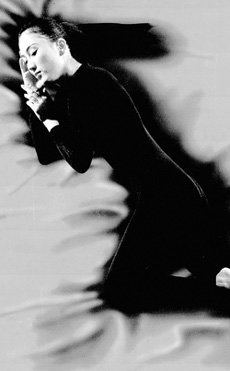Desperately in Need of Sleep

Sleep troubles are only understood by people who suffer from them. Some people toss around all night repeating, I should fall asleep, and sometimes even burst into tears in despair when dawn comes. Some people feel extremely drowsy during the day in the season of spring. Why are some unable to fall asleep?
Sleep Deficit Advice: Change Your Wake Up Time Little by Little-
Having sleeping difficulties does not always mean that you have insomnia. Sleep balance can break for several reasons. The change of season can be the source. As the sun rises up earlier, the getting up time naturally advances. It is because the sleep hormones from the brains endocrine system, which show susceptible responses to light, are reduced.
Meanwhile, it is not easy to adjust the sleeping time with the change of the season. A person who usually goes to bed at two or three A.M. does not fall asleep one hour earlier, although he or she gets up one hour earlier than usual. If this continues, the person becomes worried about his or her sleep shortage. A feeling of uneasiness excites the autonomic nerves and interrupts him or her falling asleep instead.
Although people feel drowsy during the day due to sleep deficit, they easily judge the symptoms caused by spring fatigue. However, this bad sleep cycle can lead to a chronic insomnia unless they fix their broken sleep balance rhythm. First, it is better to train for advancing ones sleeping time 10 minutes earlier than the usual. If possible, never get sleep during the day.
In the afternoon, it is better to avoid having coffee, tea, coke, and chocolates. The alerting effect from caffeine sustains a person around eight to 14 hours. Working out late at night also alerts the autonomic nerves and bothers sleep, so it is recommended to have a workout before dinner.
It is not a good habit to make up for ones sleep debt on the weekend. There is no standard for sleeping hours, such as saying that six or eight hours of sleep are absolutely necessary for people. Even eight hours of good sleep is enough for a person who didnt sleep one or two days in a row. It breaks the sleep balance if one repeats going to bed after awakening, thinking that he or she has a shortage of sleep.
Insomnia: Get Rid of the Efforts of Trying to Fall Asleep-
Insomnia is not merely caused by the breakdown of sleep balance, but also the abnormal structure of sleep. Sleep stages are divided into four, depending on the level of activation of brain waves. Insomnia patients have difficulty falling asleep. Once they fall asleep, however, they often wake up in the middle of sleep or get up too early in the morning due to unstable brain waves.
If the above pattern continues more than four weeks, the person is considered to be a chronic insomnia patient. The subjective suffering of insomnia patients is indescribably serious. Since the sources of insomnia vary, polysomnography, which checks a patients blood pressure, pulse rate, brain waves, and oxygen delivery rate of the blood, is needed during sleep.
In many cases people who suffer from insomnia try not to take sleeping pills. The recent medication prescribed for insomnia infiltrates and functions locally on relevant brain cells, so they have low toxic effects.
But abusing sleeping drugs without a doctors prescription aggravates insomnia. Some take medicines containing the sleep hormone melatonin, but the effects of those medications are not thoroughly proven.
Some say that alcohol eases sleeping difficulties. However, once people sleep after having alcohol, they do not get deep sleep. During sleep, they can easily wake up due to ones excited autonomic nerves when the alcohol rate in the blood becomes lower. The habit of having a glass of alcohol before sleep can be addictive, too.
(References: Professor Jeong Do-eon of the Neuropsychiatry Department of Seoul National University Hospital, Professor Choi Joon-ho of the Neuropsychiatry Department of Hanyang University Guri Hospital, and Professor Hong Seung-cheol of the Neuropsychiatry Department of Catholic University St. Vincents Hospital)
TK Sohn sohn@donga.com



![아침 공복 따뜻한 물 한 잔, 정말 살 빠지고 해독될까?[건강팩트체크]](https://dimg.donga.com/c/138/175/90/1/wps/NEWS/IMAGE/2026/03/05/133467930.3.jpg)



